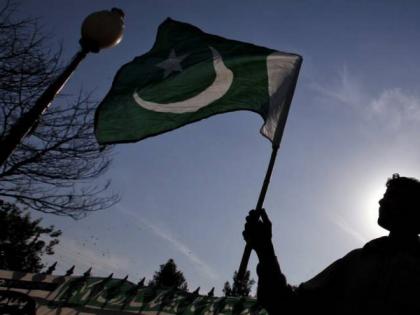Taliban rule in Afghanistan compounds Pakistan's existing TPP problem
By ANI | Updated: January 21, 2022 19:35 IST2022-01-21T19:24:34+5:302022-01-21T19:35:02+5:30
Taliban's rule in Kabul from August last year has compounded Pakistan's existing Tehreek-e-Taliban Pakistan (TTP) problem.

Taliban rule in Afghanistan compounds Pakistan's existing TPP problem
Taliban's rule in Kabul from August last year has compounded Pakistan's existing Tehreek-e-Taliban Pakistan (TTP) problem.
In 2021, the Tehreek-e-Taliban Pakistan (TTP) insurgency escalated its challenge against Pakistan. Operating from bases in Afghanistan, and with a growing presence inside Pakistan, the group mounted an increasing number of attacks against Pakistani security forces, according to Frontier Post.
Earlier, on Tuesday, after an attack by the TTP on the police in Pakistan's capital city of Islamabad, Pakistan's Interior Minister Sheikh Rashid warned that more attacks by the group are likely.
On the other hand, the most significant development in recent times was the TTP's demonstrated alliance with and patronage by the Afghan Taliban.
Further, the Pakistani government had long argued the TTP was largely a byproduct of the US presence in Afghanistan combined with external support from the former Afghan government in cahoots with India.
Therefore, Pakistani officials often implied, the US exit from Afghanistan and the return of the Taliban would limit the TTP's threat against Pakistan.
On the contrary, the TTP seems to have been energised with the Taliban's takeover and looks stronger than before. The depth of the TTP-Afghan Taliban relationship became evident after the Taliban's August takeover, according to Frontier Post.
Ever since the Taliban's takeover, the TTP has emphasised that the Afghan Taliban is not only a model insurgency but also the mothership of their movement.
Meanwhile, the Pakistani government appears to have sought the intercession of long-standing ally Siraj Haqqani, a top Taliban leader, for talks with the TTP especially as the TTP's violence mounted after the Taliban took power.
Also, Pakistan's Prime Minister Imran Khan publicly took the position that a political settlement was the only way to end Pakistan's war with the TTP.
Initial negotiations between the TTP and Pakistan, which took place in Afghanistan, made some headway. A short cease-fire was announced in early November, with reports that Pakistan had committed to the release of over 100 TTP prisoners, including some high-profile leaders that were in detention in Pakistan. But that cease-fire was suspended by the TTP in early December, as they alleged the Pakistani government didn't keep its commitments, according to Frontier Post.
( With inputs from ANI )
Disclaimer: This post has been auto-published from an agency feed without any modifications to the text and has not been reviewed by an editor
Open in app